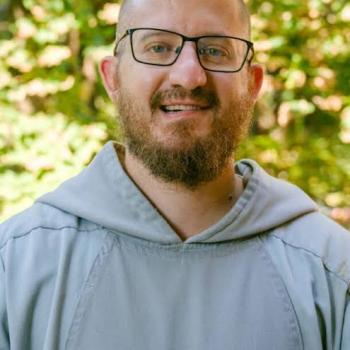Whether in debates about evolution or about pro-life issues, the language of the “direct” creation of the human soul often pops up. Yet this language is very philosophically problematic. The purpose of the next three posts will be first, to lay out the dilemma, second, to present theologian Karl Rahner’s solution, and third, to present theologian Piet Schoonenberg’s solution.
I have often heard this language of “direct” creation used in the context of arguments about evolution. In his 1996 address to the Pontifical Academy of the Sciences on Evolution, John Paul II explains:
Pius XII underlined the essential point: if the origin of the human body comes through living matter which existed previously, the spiritual soul is created directly by God (“animas enim a Deo immediate creari catholica fides non retimere iubet”). (Humani Generis)
I have also frequently heard this language used throughout my lifelong involvement in the pro-life moment. Many find the rhetoric of “direct” creation of the human soul to be vital to the argument and, like the language of “innocence,” it has sometimes created dilemmas when applied to other situations. For example, in instances of self-defense, the moral innocence of the aggressor — whether of an insane person or an unborn child — has no meaning whatsoever. Likewise, the language of direct creation of the soul, while it can appear to be helpful for speaking about the dignity and distinction of the human being in relation to the rest creation, also serves to problematize the relation of God to his creation, of the human soul to evolution, and even the nature of the transmission of original sin.
Many find the rhetoric of “direct” creation of the human soul to be vital to the argument and, like the language of “innocence,” it has sometimes created dilemmas when applied to other situations. For example, in instances of self-defense, the moral innocence of the aggressor — whether of an insane person or an unborn child — has no meaning whatsoever. Likewise, the language of direct creation of the soul, while it can appear to be helpful for speaking about the dignity and distinction of the human being in relation to the rest creation, also serves to problematize the relation of God to his creation, of the human soul to evolution, and even the nature of the transmission of original sin.
Thomas Aquinas describes God’s relation as primary cause to secondary causes by explaining that he “upholds causes in their causing.” In other words, God is not a cause among or like other causes. I usually described this relationship to my students by using the inadequate image of an author’s relationship to her book. Her causality is not the same as the causality of the characters among themselves. She does not step in and change characters as the story goes along once she has finished writing it. The author “caused” the book, but Frodo could never recognize that causality without some heavy duty thinking, nor does it affect his causal interactions with Gandalf except as “upholding” them.
Of course, my students immediately wanted to bring up the Incarnation: a special case indeed. But one of the intelligent one’s immediately also latched onto the language of “direct” creation of the human soul and asked how that language also did not make God a cause among other causes in the world. It was a good question, and has led me to think that we should drop this language altogether since it is neither fitting for our description of God nor of the natural process of evolution. I think we can continue to argue lucidly and compellingly for the dignity of the human person without needing to bring in the language of “direct creation.”















